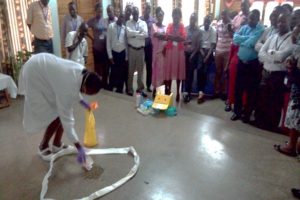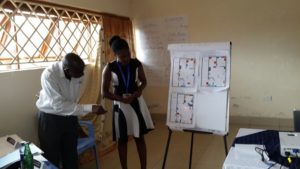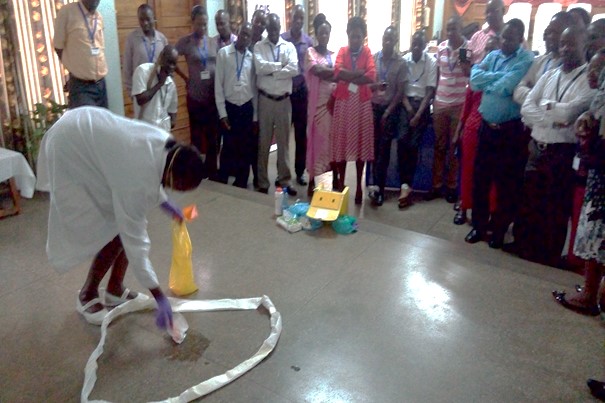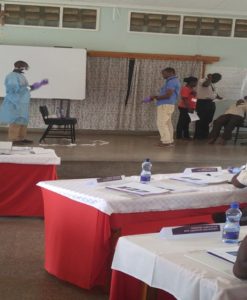By: Isaac Mugo
Introduction
The Ministry of Health (MOH) in collaboration with Global Implementation Solutions (GIS) has been focusing on giving technical assistance to selected laboratories in both Public and Faith based health facilities in eight counties in the larger western Kenya region. GIS was awarded a five years Cooperative Agreement in May 2015 from the Centers for Disease Control and Prevention (CDC) titled “implementation of sustainable laboratory quality systems in the Republic of Kenya”. GIS works closely with MOH and CDC as well as relevant partners working within the Western Region, to strengthen county laboratories to plan for, achieve and sustain quality assured laboratory services. One of the strategies is to capacity build the laboratory personnel through trainings. Biosafety and Biosecurity training is one of the major training being a key element in delivery of quality services. The training aims at protecting the personnel, the patients and the environment from biohazard agents as well as ensuring safe custody of harmful biohazard agents in the laboratory.
The activity is one of the national government requirements to build the capacity and give technical support to counties on Biosafety and Biosecurity. There is an approved national policy guidelines, training curriculum, training materials (Power point presentation) and a set of certified trainers (TOTs). The training aims at empowering trainees to implement sound biosafety practices in their respective laboratories.

Biological spill management demonstration during the training
Participant Selection
The pre-requisite for the participants is that they must be medical laboratory technologists, technician or scientists, have basic skills and knowledge on infection prevention and control and are actively working in a medical laboratory. The selection is done through the County Laboratory Coordinator’s office in consultation with the laboratory managers and GIS laboratory mentors. The Biosafety/IPC/Injection Safety Officer then generates the list and communication is done to individual participants.

Participant presenting group work results on lab reorganization to ensure safety
Progress and Achievements
Since August 2016 to date GIS has supported 12 biosafety/ Biosecurity training. In total 338 laboratory personnel have been trained and issued with certificates against the targeted 375 making 90% achievement rate. There are still few laboratory personnel not yet trained in facilities supported by GIS mainly new employees or from facilities that has been added to GIS support. The aim is to have all laboratory personnel in the eight counties trained on biosafety / biosecurity by the end of the 5 years Cooperative Agreement however the challenge is how to cover laboratory personnel that are in facilities not supported by GIS.
Biosafety Refresher Training
In pursuance and maintenance of ISO 15190 (which has specific requirements for safety in a medical laboratory) and for effective as well as sustained implementation of laboratory Biosafety and Biosecurity at both National and County levels, the Ministry of Health (MOH) in collaboration with other partners has developed a facility-based annual refresher training guide. As mentioned above GIS has been focusing on capacity building and technical support to counties on matters of Biosafety and Biosecurity trough the five days training however the National curriculum recommends an annual biosafety refresher training for all laboratory staff.
Towards this goal GIS has supported 24 facility-based biosafety refresher training as from May 2017 to date. The training takes approximately 4 hours and is facilitated by the biosafety officers who have undergone the five days training.


